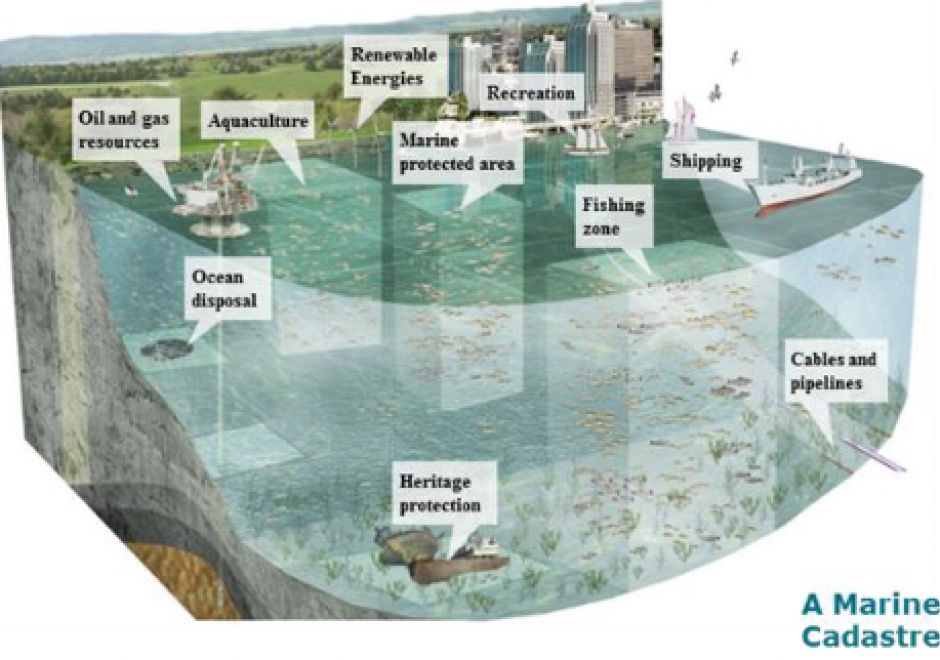DM-91 - Marine Spatial Data Infrastructure

Marine Spatial Data Infrastructure (MSDI), the extension of terrestrial Spatial Data Infrastructure to the marine environment, is a type of cyberinfrastructure that facilitates the discovery, access, management, distribution, reuse, and preservation of hydrospatial data. MSDIs provide timely access to data from public and private organizations of marine related disciplines such as hydrography, oceanography, meteorology and maritime economic sectors, to be used for applications such as the safety of navigation, aquatic and marine activities, economic development, security and defence, scientific research, and marine ecosystems sustainability. This chapter discusses the main pillars of a MSDI, its importance for facilitating public processes such as Marine Spatial Planning and Coastal Zone Management, the wide range of stakeholders, implementation challenges, and future developments, such as the FAIR design principles, new data sources and services.

DC-20 - Geospatial Organizations and Programs, Internationally-based or with a Non-US Focus
Geographic information systems (GIS) are in use in virtually every country in the world, by government agencies, industries, community entities, and academic institutions. In response, organizations and programs have been established to support diverse goals, many of which focus on the data used by GIS and the networking desires of the user base. This overview describes organizations and programs that are based outside of the United States and/or have an international mandate. Most of these groups pursue multiple goals and missions but here the compilation is organized into some of the key ones that focus primarily on data and data infrastructure, those that enable collaboration and coordination, and those that are educationally-focused.